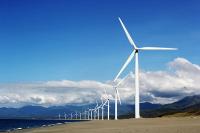What Happened to ESG?

ESG (Environmental, Social, and Governance) investing experienced a surge in popularity, particularly during the COVID-19 pandemic, with inflows peaking in 2021. This growth was driven by increasing awareness of climate change and evolving corporate priorities, according to Investopedia.1 The early stages of the pandemic saw ESG funds demonstrate a relative resilience compared to their conventional counterparts amidst market volatility. Perhaps it was fueled by a collective determination to create a better, more sustainable environment as everyone watched the world fall apart from their television screen inside their homes. Or maybe it was a challenge to political institutions that did not align with certain public interest. Whatever it was, it did not last long.
This boom was followed by a notable shift. In the U.S., sustainable funds have faced consecutive years of outflows, reaching $19.6 billion in 2024, continuing the trend from $13.3 billion in 2023, and $13.2 billion in 2022.2 How did this shift in investor sentiment occur so rapidly and what drove investors to seemingly abandon their values? It is likely due to a number of different factors including lackluster returns, greenwashing concerns, and the politicization of ESG.
Investors can only stomach so much when it comes to subpar or negative returns. According to Morningstar, in 2023 only 47% of sustainable funds landed in the top half of their respective categories, decreasing to 42% in 2024.2 While returns aren’t everything, consistently underperforming will likely cause FOMO, especially when the investments you are in may not even be as sustainable and ethical as the companies that issue them claim. Greenwashing is defined by Investopedia as “the process of conveying a false impression or misleading information about how a company’s products are environmentally sound.”1 If investors can’t trust that companies are accurately reporting their data, then why should they willingly choose an investment that does not outperform the peer group? It would be like buying a "sustainable" car that gets worse mileage than its conventional counterparts and still relies on fossil fuels. It doesn’t make any sense.
On top of lagging returns and greenwashing concerns, ESG investing has faced significant political backlash, primarily in the United States, where it has become a partisan issue. Critics argue that ESG prioritizes "woke" ideologies and social goals over financial returns, ignoring fiduciary responsibility and potentially harming industries like fossil fuels. This has led to state-level restrictions on using ESG criteria in public pension funds and increased scrutiny from regulators. However, this only seems to be an issue in the U.S., as other countries in Europe and Asia are instituting new regulations around ESG that demand more transparency and accountability.3 In fact, the global value of ESG assets are somewhere between $30 to $40 trillion and are estimated to increase to up to $50 trillion by 2030 according to Priya Parrish, Chief Investment Officer at Impact Engine.4
For the U.S., the future of ESG investing likely involves a more nuanced approach, where investors carefully weigh both financial returns and sustainability factors. Companies that genuinely integrate ESG principles into their business strategies and demonstrate a measurable positive impact may continue to attract investment, while those seen as merely "greenwashing" or sacrificing returns may struggle. As political administrations change, we can expect to see a rise (or fall) in the popularity of these funds.
Meet the West Financial Team »
Read the August 2025 Financial Planning Focus:
- "How Do You Manage Your Retirement Plan?" by Kristan Anderson, CEBS®, CFP® »
- "Planning for the Inevitable" by Alan R. Menase, CFP® »
- "Lessons From A Market High" by Glen J. Buco, CFP® »
Sources:
2 https://www.morningstar.com/sustainable-investing/us-sustainable-funds-suffer-another-year-outflows
4 https://fortune.com/2024/10/10/why-esg-assets-grow-despite-attacks-on-woke-capitalism/
West Financial Services, Inc. (“WFS”) offers investment advisory services and is registered with the U.S. Securities and Exchange Commission (“SEC”). SEC registration does not constitute an endorsement of the firm by the SEC nor does it indicate that the firm has attained a particular level of skill or ability. You should carefully read and review all information provided by WFS, including Form ADV Part 1A, Part 2A brochure and all supplements, and Form CRS.
The information contained herein does not constitute investment advice or a recommendation for you to purchase or sell any specific security. You are solely responsible for reviewing the content and for any actions you take or choose not to take based on your review of such content.
This information is intended to be educational in nature, and not as a recommendation of any particular strategy, approach, product or concept. These materials are not intended as any form of substitute for individualized investment advice. The discussion is general in nature, and therefore not intended to recommend or endorse any asset class, security, or technical aspect of any security for the purpose of allowing a reader to use the approach on their own.
Certain information contained herein was derived from third party sources as indicated. While the information presented herein is believed to be reliable, no representation or warranty is made concerning the accuracy of any information presented. WFS has not and will not independently verify this information. Where such sources include opinions and projections, such opinions and projections should be ascribed only to the applicable third party source and not to WFS.
Certain statements herein reflect projections or opinions of future financial or economic performance. Such statements are “forward-looking statements” based on various assumptions, which may not prove to be correct. No representation or warranty can be given that the projections, opinions, or assumptions will prove to be accurate.

